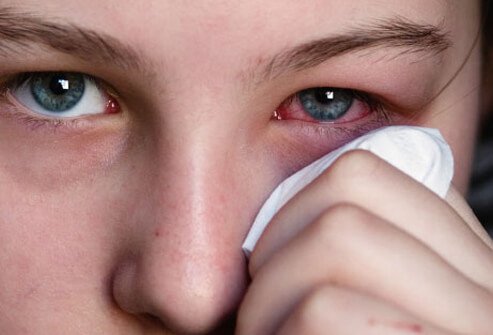PHCC Urges Public to Take Caution to Prevent Common Winter Eye Problems

The Primary Health Care Corporation (PHCC) has warned the public about common winter eye problems, such as dry eyes and conjunctivitis, and urged them to take precautions to prevent these conditions.
Dr. Noha Kamal Saleh, working as an Ophthalmologist at PHCC's West Bay Health Center, states that exposure to cold air currents, low humidity, and home heating devices can affect the tear film layer leading to dehydration and resulting in symptoms such as red eyes, itchy eyes, persistent watery eyes, burning eyes, and gritty eye sensations. Treatment options include lubricating eye drops or ointments, depending on the severity of dryness. Some patients may also suffer from dry eyelids due to exposure to dry air during winter, causing itchy, thick, scaly, and flaky skin, as well as a change in skin color in some cases, particularly in patients with active eczema. Moisturizing the eyelids and using anti-inflammatory ointments are recommended as part of the treatment.
Respiratory infections, such as influenza and colds, can also lead to conjunctivitis during the winter as the eyelids are lined with a membrane called the conjunctiva, which is similar to the respiratory system membranes and sinuses. In addition, any bacterial or viral germ that affects the respiratory system or sinuses may lead to conjunctivitis, resulting in various symptoms. Dr. Saleh states that viral conjunctivitis is highly contagious and can spread rapidly, particularly to children. The patient experiences swollen eyelids and redness in one eye, followed by the other eye within days, accompanied by watery or mucoidal discharge. It is also transmitted through contact and sharing household items between family members.
Prevention is crucial to reduce the spread of infection. Still, in case of infection, patients should receive topical treatment to relieve symptoms and not use antibiotic eye drops, as they do not treat such infections. Bacterial conjunctivitis can lead to thick, purulent eye discharge, which can cause sticky eyelids, especially in the morning, in addition to pain and extreme redness of the eyes. This type of conjunctivitis can be easily transmitted between individuals and may be accompanied by sinusitis (sinus infection). It should be treated with topical antibiotics. Some patients may develop seasonal allergies stemming from cold air during the winter, resulting in red, itchy eyes and nasal congestion. Other eye problems can affect those who live in or visit snowy areas, making them more susceptible to UV radiation. Snow is highly reflective of UV radiation, which can lead to inflammation of the cornea (keratitis). Symptoms of keratitis include extreme sensitivity to light (photophobia) and blurred vision. To prevent these problems, Dr. Saleh recommends wearing protective winter goggles when visiting snowy areas.
To prevent winter eye problems, Dr. Saleh advises people to avoid using topical antibiotics or steroids without consulting a doctor, as incorrectly used eye treatments can have harmful effects. She also advises the public to wear climate-appropriate sunglasses and stay hydrated. To prevent bacterial conjunctivitis, she advises the public to wash their hands properly and not to share personal items with others. She advises not to use contact lenses in case of conjunctivitis or severe dehydration.
Dr. Saleh also advises the public to see their eye doctor if they notice symptoms such as blurred vision, sensitivity to light, itchy eyes, redness, discharge, or pain for examination and appropriate treatment.